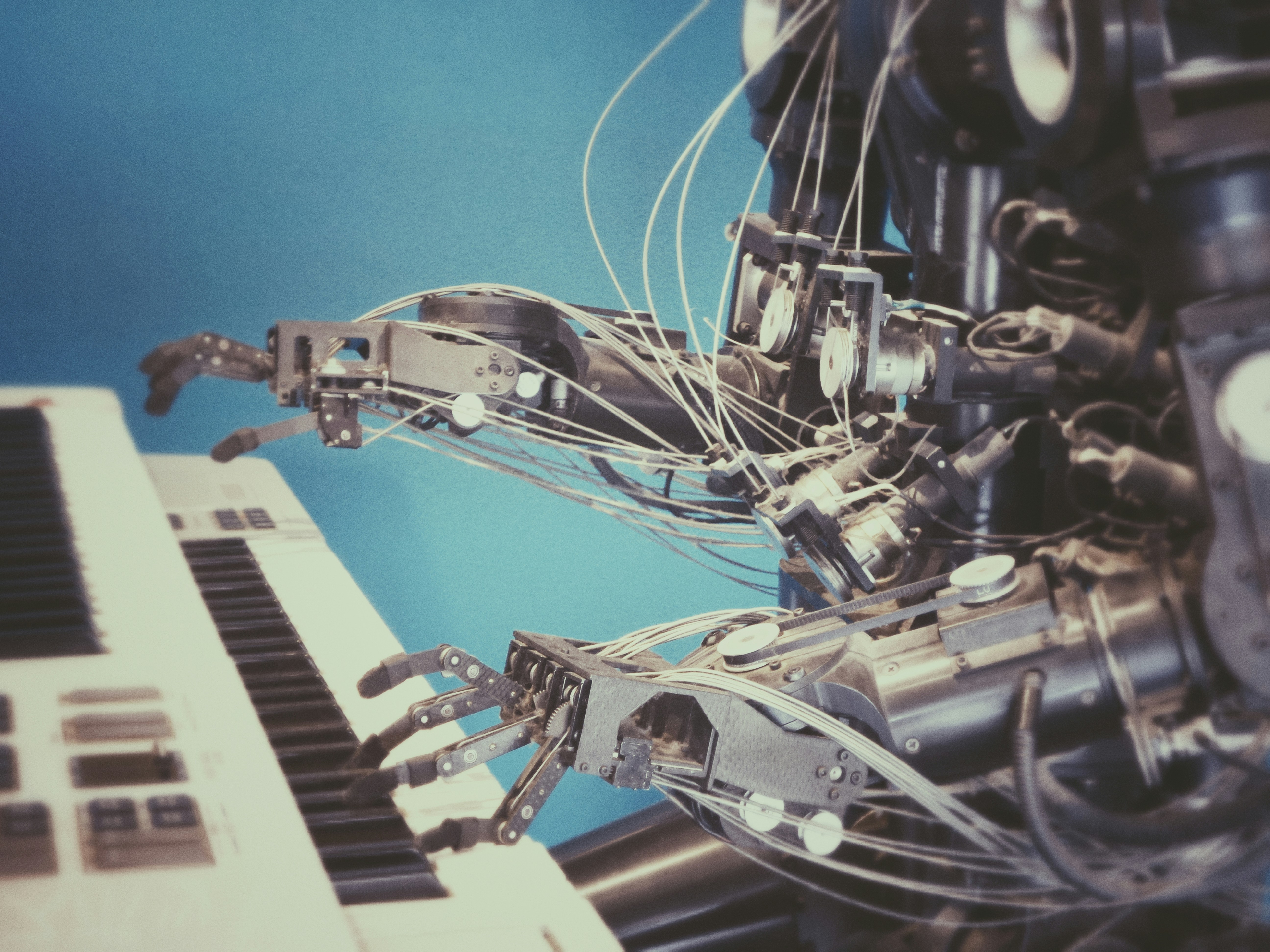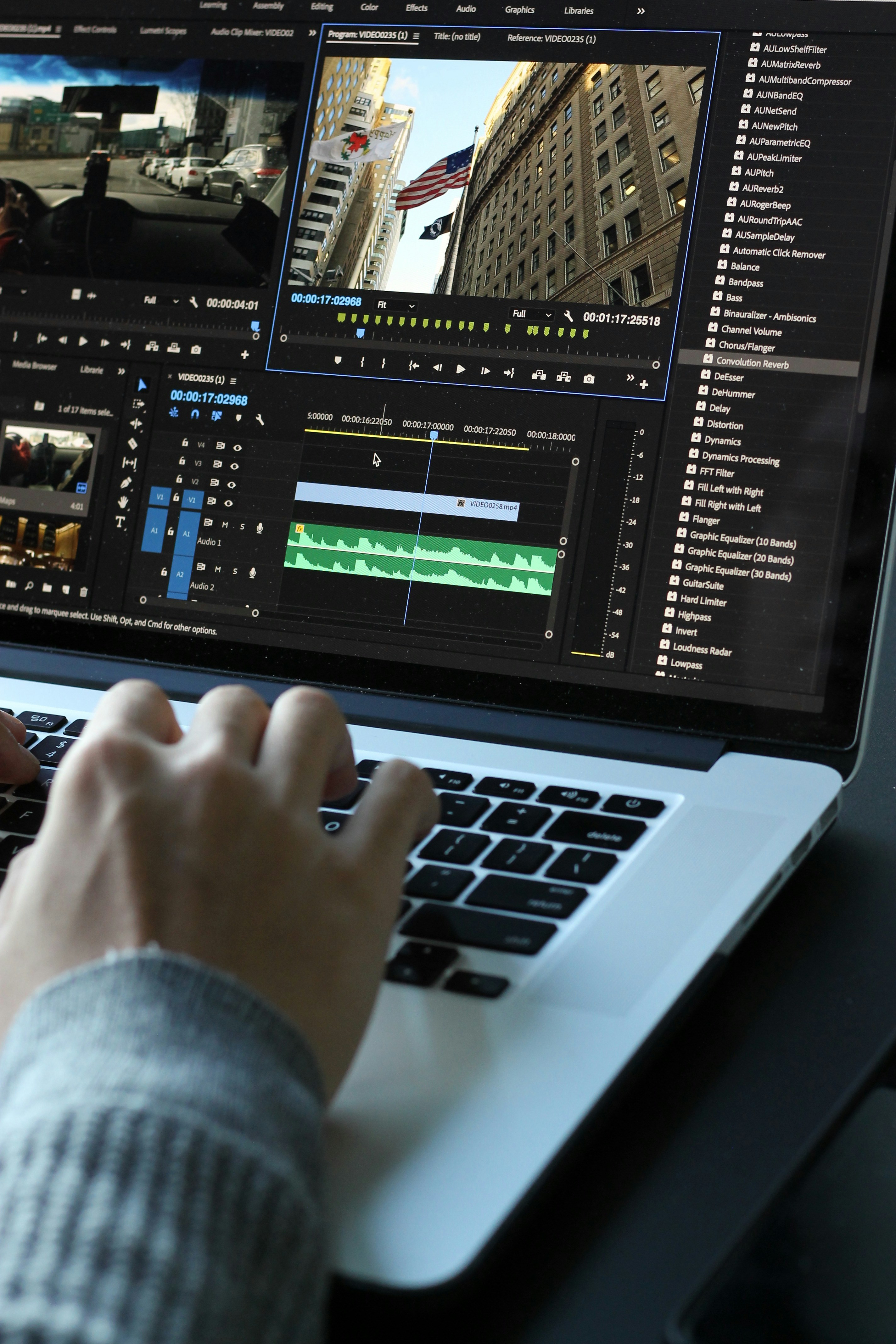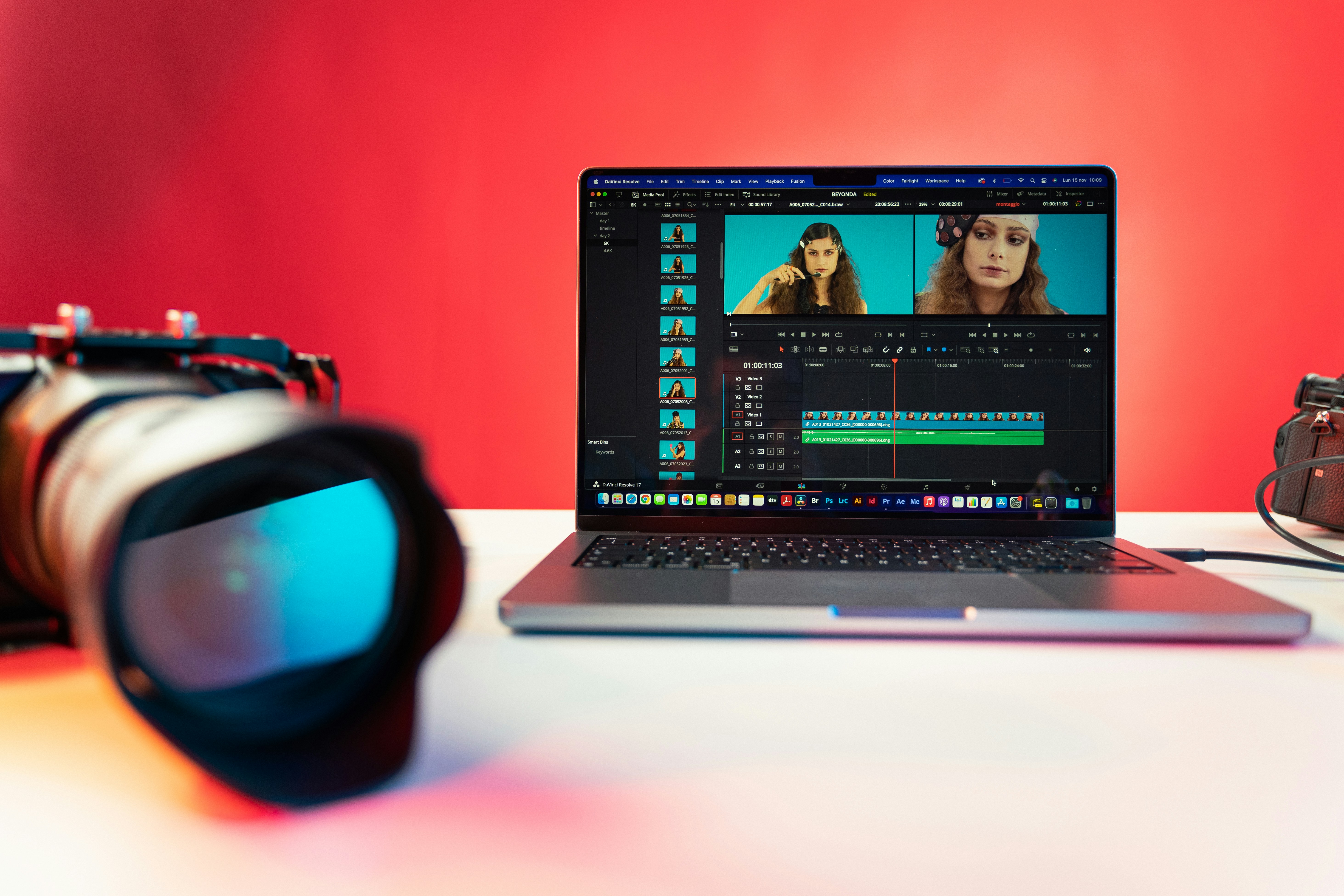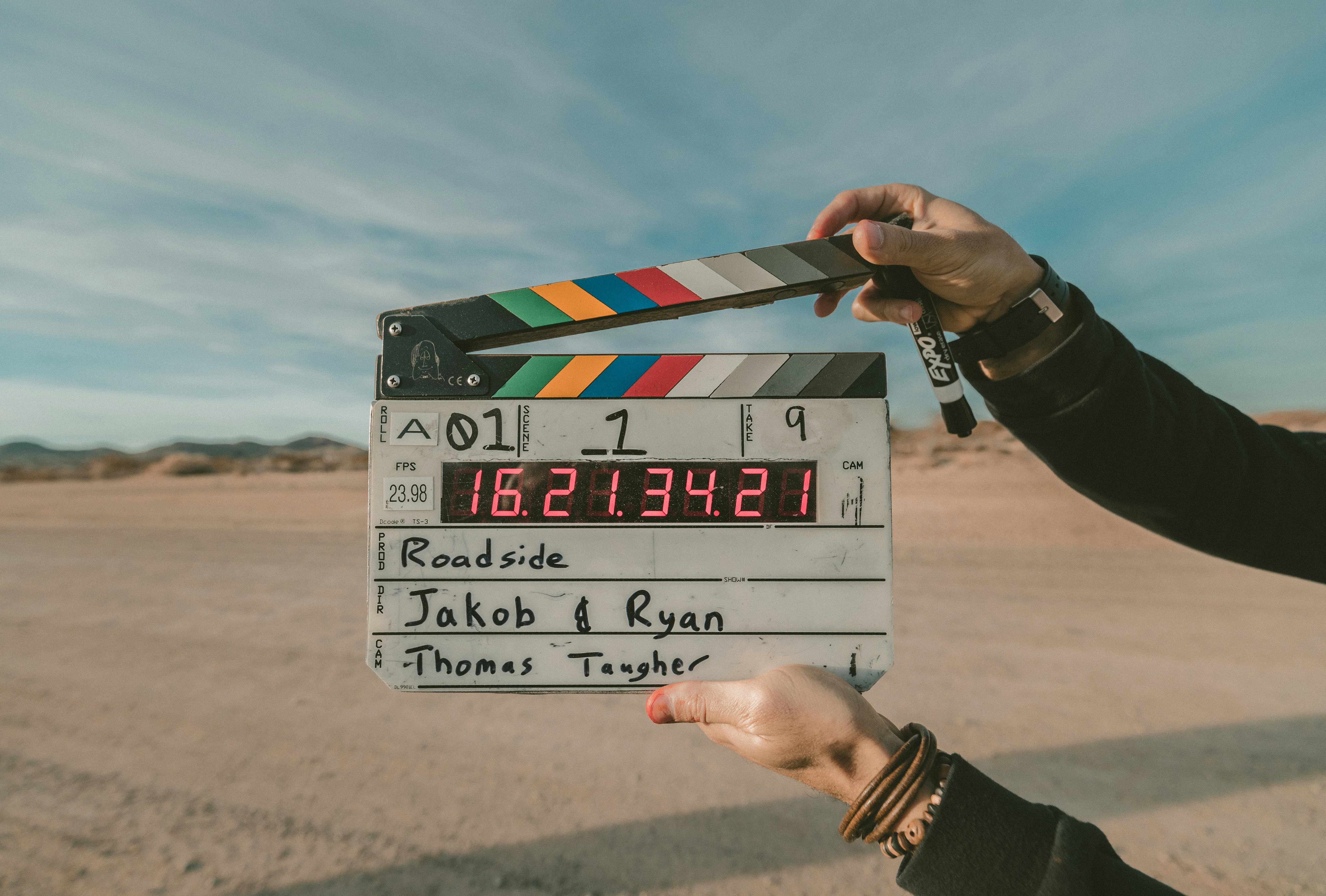Aug 8, 2024
Aug 8, 2024
Aug 8, 2024
Insight
Insight
Insight
Why AI-Generated Music is the Future of Soundtracks


In today’s digital landscape, video content is king. From product demos to customer testimonials and social media campaigns, video has become the most effective way for brands to connect with their audiences. But as the demand for high-quality video content increases, marketers are facing new challenges: How do you keep up with the constant need for fresh content without burning out your team or breaking your budget?
Enter AI-generated video content—a revolutionary solution that is reshaping the future of marketing. AI tools, such as Lucis, are changing the game by enabling marketers to produce professional-grade videos in a fraction of the time and cost. In this article, we’ll explore why AI-generated video content is the future of marketing and how businesses can harness its power to stay ahead of the curve.
1. AI Drastically Reduces Video Production Time
Traditional video production is a time-consuming process that involves brainstorming ideas, writing scripts, filming, editing, and post-production. For a typical marketing team, producing even a short video can take weeks, if not months. This lengthy process can slow down campaigns and delay go-to-market strategies, especially for brands that rely on timely or seasonal content.
AI-generated video platforms like Lucis solve this problem by automating many of the labor-intensive tasks involved in video production. Instead of manually editing footage, adjusting audio, and color-correcting scenes, Lucis’s AI can handle these tasks in minutes. By inputting a simple script or idea, the platform generates a fully-produced video, complete with transitions, voiceovers, and music.
This automation not only accelerates the production timeline but also allows marketers to produce more content at a faster rate, meeting the ever-growing demand for video across multiple channels.
2. Personalized Video Content at Scale
One of the key benefits of AI-generated video is its ability to personalize content at scale. In an era where consumers expect tailored experiences, personalized marketing has become crucial. However, creating unique videos for different segments of your audience can be resource-intensive and often infeasible for smaller teams.
With AI tools like Lucis, marketers can easily create personalized video content for various customer segments, markets, or even individual users. By integrating customer data, the AI can automatically adjust elements like text, images, and voiceovers to cater to specific audiences. For example, you could create different versions of a product demo video that highlights features relevant to specific customer personas—without having to manually edit multiple videos.
This capability enables brands to deliver more relevant content, improve engagement, and ultimately drive higher conversion rates—all without a significant increase in time or effort.
3. Consistency Across Campaigns and Platforms
Maintaining brand consistency across different marketing campaigns and platforms can be a challenge, especially for brands that rely on multiple teams or external agencies for content creation. Inconsistent messaging, visuals, or tone can dilute a brand’s identity and weaken its impact on potential customers.
AI-generated video content ensures consistency by automating the application of brand guidelines, such as color schemes, fonts, and logo placements. With tools like Lucis, marketers can create standardized templates that the AI will follow when generating new videos. This ensures that every piece of content adheres to the brand’s visual and tonal identity, regardless of who is producing it or how often videos are made.
Additionally, Lucis makes it easy to produce videos optimized for different platforms—whether it’s YouTube, Instagram, TikTok, or LinkedIn—by automatically adjusting the format, length, and resolution of the video to meet the platform’s requirements. This allows marketers to maintain a cohesive brand presence across multiple channels, all while saving time and resources.
4. Cost-Effective Video Production
Video production has traditionally been an expensive endeavor, especially for brands that frequently require high-quality content. Hiring videographers, editors, and production teams can quickly add up, not to mention the costs associated with renting equipment, studio space, or purchasing stock footage.
AI-generated video platforms offer a cost-effective alternative. By automating much of the production process, businesses can significantly reduce the need for expensive human labor and resources. Lucis, for example, allows you to create professional videos without the need for a full production crew or post-production team. The platform also provides access to a library of royalty-free stock footage, images, and music, eliminating the need for costly licenses.
This makes AI-generated video content a viable option for businesses of all sizes, from startups with limited budgets to large enterprises looking to scale their video marketing efforts without increasing costs.
5. Data-Driven Video Optimization
One of the most exciting aspects of AI-generated video content is its ability to leverage data for optimization. Unlike traditional video production, which relies on human intuition to make creative decisions, AI uses data-driven insights to improve video performance.
Lucis’s AI can analyze audience behavior, engagement metrics, and historical data to optimize your video content for specific outcomes. For example, the AI might suggest certain video lengths based on what performs best on different platforms, or recommend the ideal moment to place a call to action (CTA) based on viewer drop-off rates.
Additionally, AI tools can provide real-time feedback and suggest improvements as the video is being created. This means that marketers no longer have to rely solely on post-launch performance analytics to make adjustments. Instead, they can optimize their videos during the production phase, ensuring that the content is as effective as possible from the moment it’s published.
6. Future-Proofing Your Marketing Strategy
As AI technology continues to advance, the role of AI-generated video content in marketing will only grow. By adopting AI tools like Lucis now, businesses can future-proof their marketing strategies and stay ahead of competitors.
AI-generated videos are not just a short-term solution for content creation—they represent the future of marketing automation. As the demand for video content continues to rise, AI will play a crucial role in helping brands meet that demand efficiently and effectively. From automated video generation to personalized content and real-time optimization, AI is set to become an indispensable tool for marketers in the years to come.
Final Thoughts
The future of marketing lies in AI-generated video content. By automating the production process, enabling personalized content at scale, and optimizing videos based on data, AI tools like Lucis are revolutionizing how businesses create and distribute video content. Whether you’re a small business looking to produce cost-effective videos or a large enterprise seeking to scale your video marketing efforts, AI-generated video content offers a powerful solution for staying competitive in today’s digital landscape.

In today’s digital landscape, video content is king. From product demos to customer testimonials and social media campaigns, video has become the most effective way for brands to connect with their audiences. But as the demand for high-quality video content increases, marketers are facing new challenges: How do you keep up with the constant need for fresh content without burning out your team or breaking your budget?
Enter AI-generated video content—a revolutionary solution that is reshaping the future of marketing. AI tools, such as Lucis, are changing the game by enabling marketers to produce professional-grade videos in a fraction of the time and cost. In this article, we’ll explore why AI-generated video content is the future of marketing and how businesses can harness its power to stay ahead of the curve.
1. AI Drastically Reduces Video Production Time
Traditional video production is a time-consuming process that involves brainstorming ideas, writing scripts, filming, editing, and post-production. For a typical marketing team, producing even a short video can take weeks, if not months. This lengthy process can slow down campaigns and delay go-to-market strategies, especially for brands that rely on timely or seasonal content.
AI-generated video platforms like Lucis solve this problem by automating many of the labor-intensive tasks involved in video production. Instead of manually editing footage, adjusting audio, and color-correcting scenes, Lucis’s AI can handle these tasks in minutes. By inputting a simple script or idea, the platform generates a fully-produced video, complete with transitions, voiceovers, and music.
This automation not only accelerates the production timeline but also allows marketers to produce more content at a faster rate, meeting the ever-growing demand for video across multiple channels.
2. Personalized Video Content at Scale
One of the key benefits of AI-generated video is its ability to personalize content at scale. In an era where consumers expect tailored experiences, personalized marketing has become crucial. However, creating unique videos for different segments of your audience can be resource-intensive and often infeasible for smaller teams.
With AI tools like Lucis, marketers can easily create personalized video content for various customer segments, markets, or even individual users. By integrating customer data, the AI can automatically adjust elements like text, images, and voiceovers to cater to specific audiences. For example, you could create different versions of a product demo video that highlights features relevant to specific customer personas—without having to manually edit multiple videos.
This capability enables brands to deliver more relevant content, improve engagement, and ultimately drive higher conversion rates—all without a significant increase in time or effort.
3. Consistency Across Campaigns and Platforms
Maintaining brand consistency across different marketing campaigns and platforms can be a challenge, especially for brands that rely on multiple teams or external agencies for content creation. Inconsistent messaging, visuals, or tone can dilute a brand’s identity and weaken its impact on potential customers.
AI-generated video content ensures consistency by automating the application of brand guidelines, such as color schemes, fonts, and logo placements. With tools like Lucis, marketers can create standardized templates that the AI will follow when generating new videos. This ensures that every piece of content adheres to the brand’s visual and tonal identity, regardless of who is producing it or how often videos are made.
Additionally, Lucis makes it easy to produce videos optimized for different platforms—whether it’s YouTube, Instagram, TikTok, or LinkedIn—by automatically adjusting the format, length, and resolution of the video to meet the platform’s requirements. This allows marketers to maintain a cohesive brand presence across multiple channels, all while saving time and resources.
4. Cost-Effective Video Production
Video production has traditionally been an expensive endeavor, especially for brands that frequently require high-quality content. Hiring videographers, editors, and production teams can quickly add up, not to mention the costs associated with renting equipment, studio space, or purchasing stock footage.
AI-generated video platforms offer a cost-effective alternative. By automating much of the production process, businesses can significantly reduce the need for expensive human labor and resources. Lucis, for example, allows you to create professional videos without the need for a full production crew or post-production team. The platform also provides access to a library of royalty-free stock footage, images, and music, eliminating the need for costly licenses.
This makes AI-generated video content a viable option for businesses of all sizes, from startups with limited budgets to large enterprises looking to scale their video marketing efforts without increasing costs.
5. Data-Driven Video Optimization
One of the most exciting aspects of AI-generated video content is its ability to leverage data for optimization. Unlike traditional video production, which relies on human intuition to make creative decisions, AI uses data-driven insights to improve video performance.
Lucis’s AI can analyze audience behavior, engagement metrics, and historical data to optimize your video content for specific outcomes. For example, the AI might suggest certain video lengths based on what performs best on different platforms, or recommend the ideal moment to place a call to action (CTA) based on viewer drop-off rates.
Additionally, AI tools can provide real-time feedback and suggest improvements as the video is being created. This means that marketers no longer have to rely solely on post-launch performance analytics to make adjustments. Instead, they can optimize their videos during the production phase, ensuring that the content is as effective as possible from the moment it’s published.
6. Future-Proofing Your Marketing Strategy
As AI technology continues to advance, the role of AI-generated video content in marketing will only grow. By adopting AI tools like Lucis now, businesses can future-proof their marketing strategies and stay ahead of competitors.
AI-generated videos are not just a short-term solution for content creation—they represent the future of marketing automation. As the demand for video content continues to rise, AI will play a crucial role in helping brands meet that demand efficiently and effectively. From automated video generation to personalized content and real-time optimization, AI is set to become an indispensable tool for marketers in the years to come.
Final Thoughts
The future of marketing lies in AI-generated video content. By automating the production process, enabling personalized content at scale, and optimizing videos based on data, AI tools like Lucis are revolutionizing how businesses create and distribute video content. Whether you’re a small business looking to produce cost-effective videos or a large enterprise seeking to scale your video marketing efforts, AI-generated video content offers a powerful solution for staying competitive in today’s digital landscape.
Newsletter
Newsletter
Subscribe to our newsletter to get tips, tutorials, industry insights.
Newsletter
Subscribe to our newsletter to get tips, tutorials, industry insights.
Blog
Blog
Blog


